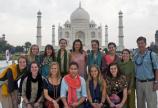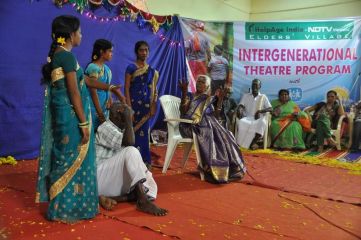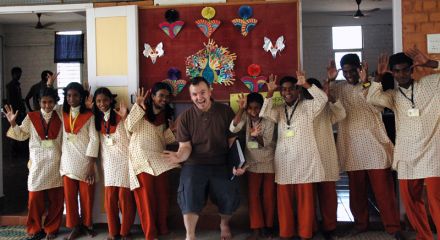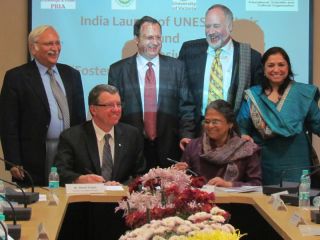India Field School: A rich cultural experience for UVic students
- Anne MacLaurin
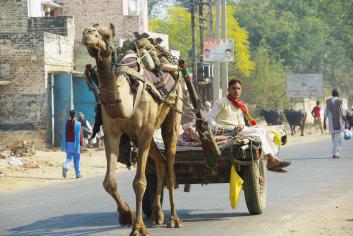
Travel in India is not for the faint of heart; the diverse culture, dense population and multiple language dialects are challenging for most travellers. In August, 20 UVic geography field school students took up the challenge and went to India, where they spent the next four weeks exploring issues of community governance, women's empowerment, resource use and management, and conservation. The India Field School was a first for UVic in partnership with the Society for Participatory Research in Asia (PRIA).
UVic geography professor Phil Dearden and PhD candidate Crystal Tremblay led the group through Northern India from village to village, beginning in New Delhi and continuing to Haryana and the Himalayan region, followed by a number of days in the Alwar district of Rajasthan at the Sariska Tiger Reserve.
In each village the students observed and thought about areas of conservation, development and resource management. For many of the students this was their first time travelling outside Canada.
“I’m overwhelmed—overwhelmed with joy, appreciation, satisfaction and inspiration. This school was more than I ever could have hoped for. I’ve learned so much, I’ve changed, and I’ve found so much more to explore,” says Ellen Hunter-Perkins.
"The whole field trip was very intense; the students were amazing and embraced all the challenges of travelling in a different culture," says Tremblay.
“The India field school was invaluable and was unquestionably the highlight of all my undergraduate degree experiences," writes Victoria Francis. "I feel I have gained many important skills and learned many valuable lessons, including interview skills, criteria of participatory research, park management planning—just to name a few.”
Another student, Julia Bennett writes, “In India, the country of diversity, it seemed fitting for us to have a wide variety of experiences. I kept saying 'I can't believe I'm in class right now,' when we were hiking through a national park, talking to locals in a village, or wandering through a palace. I realized the value of experiential learning opportunities like these. Instead of simply learning about topics, we saw them first-hand and had the opportunity to engage with them.”
“The most memorable thing about this trip was all of the women whom I got to meet," says Sarah Brown. "Their daily struggles became real to me and I got to experience and feel what they go through. The oppression that they feel, I got to feel too. Their faces and their kindness is something that is cherished memory for me.”
On their final day of the field course the students presented their observations at the PRIA headquarters in New Delhi. A highlight for students was having the PRIA staff and visitors from the Canadian High Commission attend.
"Field school success is defined largely by the quality of the students," says Dearden. "We could not have wished for a more engaged and perceptive group and this resulted in an experience that many of them will remember for the rest of their lives.”
Since 1982, PRIA has focused on key initiatives including participatory research, citizen-centric development, capacity building, knowledge building and policy advocacy. For more information on PRIA please visit: http://www.pria.org/
For pictures and a video about the UVic Geography Field School please visit: http://crystaltremblay.com/
Also http://www.youtube.com/watch?v=JUWF3lg50lo&feature=digest_thu
Photos
In this story
Keywords: india, field schools


